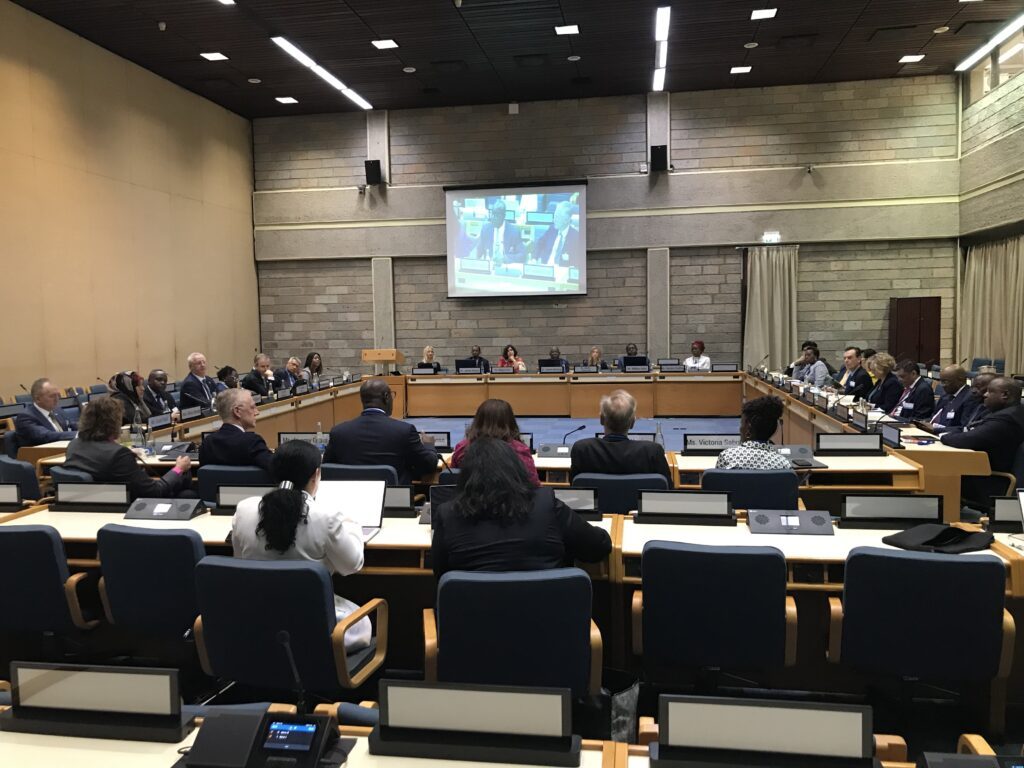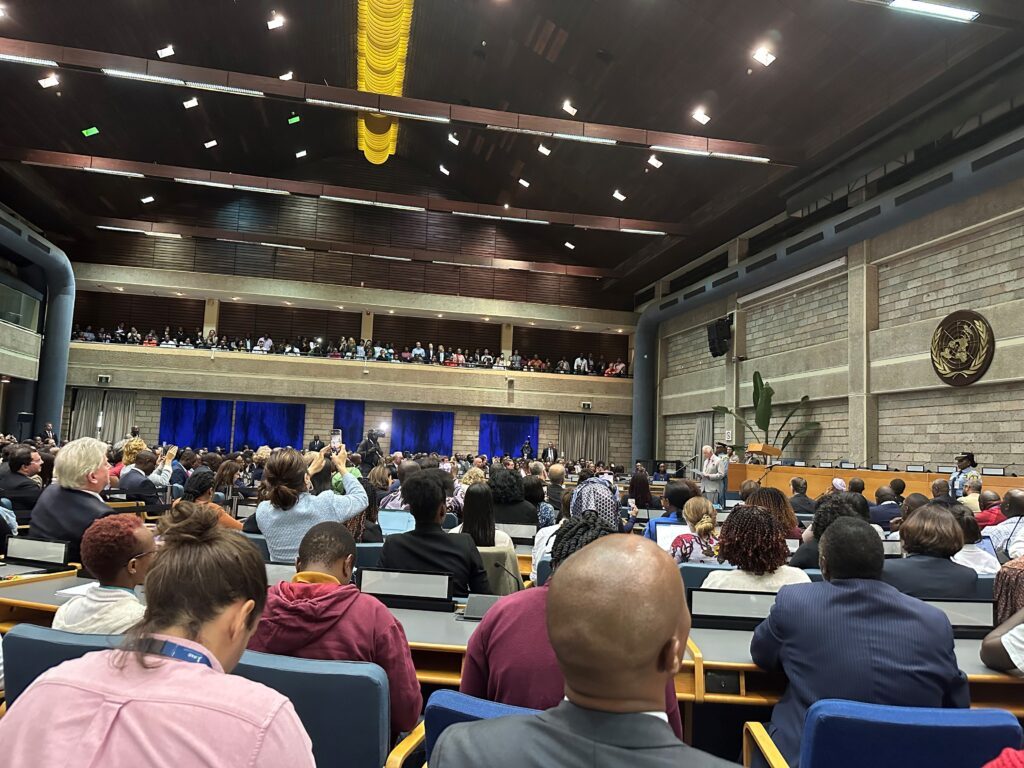Leaders consider how to address the barriers to sustainable development.
As part of HM’s visit to Kenya, a roundtable was hosted by the Sustainable Markets Initiative on 01 November 2023 at the United Nations Office Nairobi at (UNON) to explore how the private sector can best support the achievement of African Nationally Determined Contributions (NDCs) while responding to the needs of cities and citizens, notably in the high demand areas of Energy, Agriculture, Health, Urban Development and Finance. The roundtable included Chief Executive Officers (CEOs) and experts based in Kenya and the wider African continent together with CEOs the leaders of foreign multinationals. The discussion focused on the barriers to transition and how can these be removed.
The Sustainable Markets Initiative was launched by His Majesty King Charles III, when he was Prince of Wales, in 2020 at the World Economic Forum’s Annual Meeting in Davos. SMI’s mandate, better known as the Terra Carta, has a mission to build a coordinated global effort to enable the private sector to accelerate the achievement of global climate, biodiversity and Sustainable Development Goal targets.

Sustainable Cities & Human Settlements
The CAA was represented by its President, Mr Peter Oborn, who participated as a representative of the Commonwealth Sustainable Cities Initiative (CSCI) and as a member of a five-person sustainable cities group comprising Ms Nasra Nanda, Chief Executive Officer at the Kenya Green Building Society, Ms Shipra Narang Suri, Chief, Urban Practices Branch, UN-Habitat, Mr Shahrukh Wani, Cities Economist at the International Growth Centre, Mr Jeremy Cross from The Prince’s Foundation and Ms Amaka Godfrey from Water Aid.
The briefing for the event recognised that urban populations are growing rapidly across Africa, invariably unplanned, and with acute implications for rising greenhouse gas emissions and basic human needs. Simultaneously, fast-growing cities present a burgeoning supply of human capital, entrepreneurship, networks and financing. Sustainable cities are a natural point of convening for delivery of interlinked climate and SDG targets and the built environment is a driver to champion investment, energy efficiency, and foster connections across sectors. Opportunities for delivering economic benefit from urban growth include:
- Planning & Land Use: Building capacity to help promote integrated land use planning and effective value creation.
- Infrastructure: Provision of public transport, energy, waste and water to serve Africa’s rapidly growing urban populations.
- Housing: Developing affordable, low carbon housing and associated housing finance products to address the current deficit of over 50m units in Sub-Saharan Africa.
- Education & Healthcare: Delivering facilities within mixed-use development to promote skills development together with health and well-being.
- Private Sector Participation: Developing bankable projects which are resilient and climate smart, in positive partnerships with local government and non-state actors.
Sustainable Markets will not achieved without Sustainable Cities
The roundtable concluded with the recognition that sustainable markets will not be achieved without sustainable cities. The group recognised the need for innovative financing and procurement options together with the need for greater understanding between those working in policy development, programme development, project definition and business case preparation. The importance of data sharing between the public and private sector was also recognised, to support better evidence based decision making, to reduce risk and increase impact while simultaneously improving return on capital. The group resolved to take forward the discussion to COP28 and beyond.
The Sustainable Markets Initiative also used the opportunity presented by the roundtable to launch its Africa Council, which will showcase progress being made across the region while focusing on building global, regional, and local partnerships across industry and finance to deliver meaningful transition results.

HM King Charles III expresses his thanks for the work of staff at UNON
Following the roundtable, a plenary discussion took place, hosted by the British Foreign Secretary The Rt Hon James Cleverly. On completion of the panel discussion, His Majesty joined those present to express his thanks for the work being undertaken by UN-Habitat and UNEP, before then meeting participants from the roundtable.